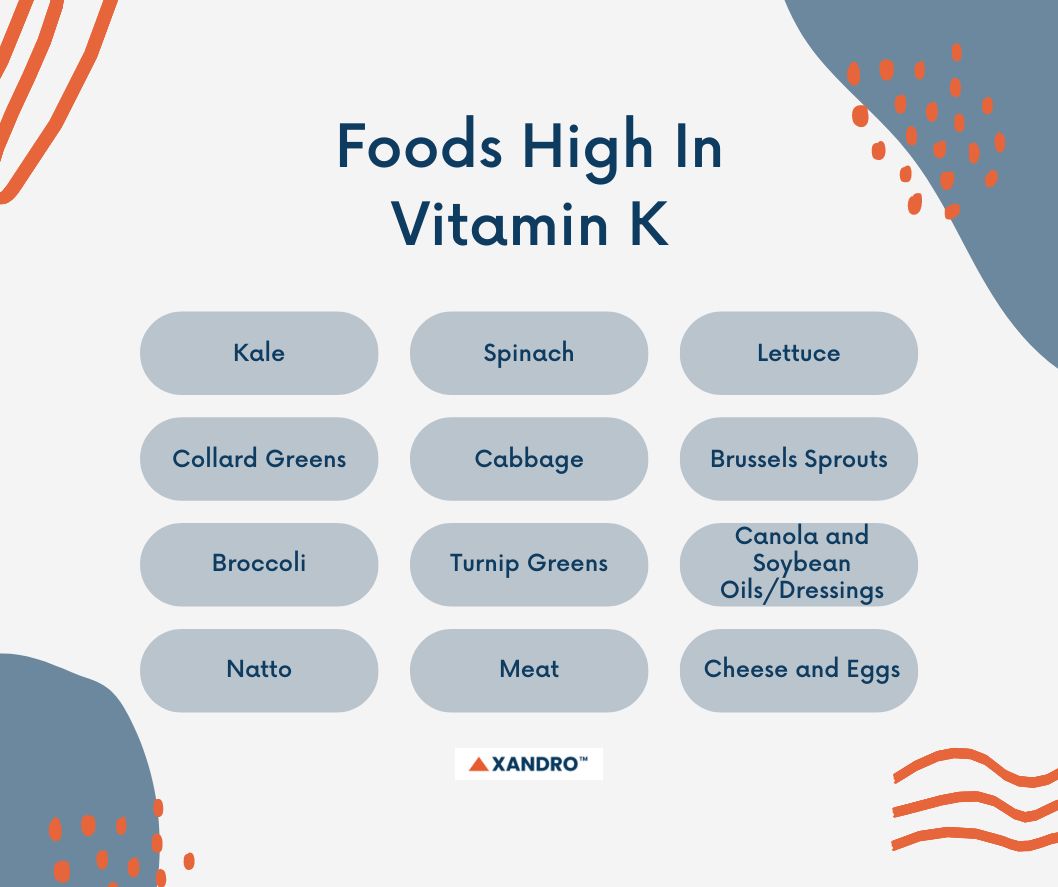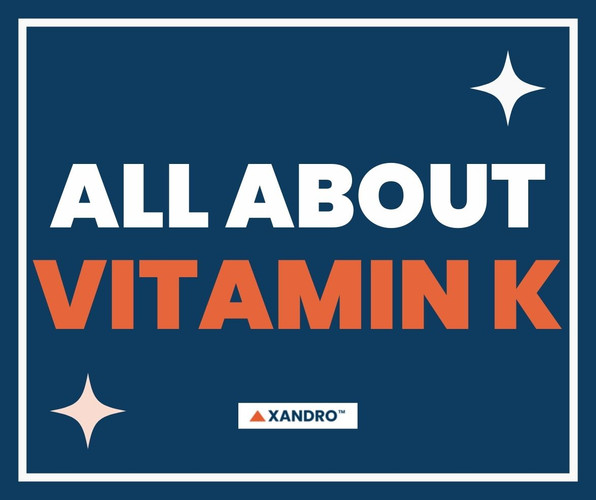What Does Vitamin K Do for Your Body and Do I Need to Take It?
26th Feb 2024
Do I Need to Take a Vitamin K Supplement?
There are so many vitamins that our body needs that it can be difficult to figure out what we need to eat daily to get each of them — our list of vitamins and nutrients and where to find them might help!
One of these is vitamin K, one not many people may have much knowledge about. We constantly hear about vitamins A, C and E as well as B vitamins, but vitamin K is important too, so let’s discuss more about this nutrient to see what it’s all about.
- Where Does Vitamin K Come From?
- What Does Vitamin K Do for Your Body?
- Foods Rich in Vitamin K
- Vitamin K Dosage
- What are 4 Signs of Deficiency of Vitamin K?
Vitamin K is a fat-soluble vitamin, meaning it’s absorbed with the fats we eat and stored in our fat, unlike water-soluble vitamins that are dissolved in our body and excreted through our urine.
It comes in two forms; phylloquinone (vitamin K1), which is found in green leafy vegetables such as kale, spinach and collard greens; and menaquinones (vitamin K2), which are produced by bacteria in the body as well as from meats, cheeses and eggs.
It’s found throughout the body, like in our liver, brain, heart, pancreas and bones. Since it breaks down quickly and is flushed out of our system through our urine and stool, our bodies don’t reach toxic levels of vitamin K, so even in high intakes, it’s generally safe to consume.
In terms of the function of vitamin K, vitamin K helps our bodies make proteins (prothrombin) needed for building bones and clotting our blood. This prevents us from bleeding excessively when injured.
Does Vitamin K Thin Blood? No, it thickens (clots) our blood to stop bleeding, which is why it can counter the effects, and vice versa, of blood-thinning medication, like warfarin.
What about other vitamin K benefits?
In terms of bone health, there may be a link between low vitamin K and osteoporosis, while studies have found a link between higher vitamin K levels and improved episodic memory in older adults, so there is potential for cognitive health benefits from vitamin K.
What’s more, vitamin K may also help keep our blood pressure lower by preventing minerals from building up in our arteries, which occurs naturally as we age and which is a major risk factor for heart disease. Having adequate levels of vitamin K also lowers the risk of stroke.

As for where to get vitamin K:
Phylloquinone:
- Green leafy vegetables such as kale, spinach, collard greens, cabbage, broccoli, turnip greens, lettuce and Brussels sprouts
- Canola and soybean oil, plus salad dressings with these
Menaquinones:
- Natto
- Small amounts are found in meat, cheese and eggs
An adequate intake of vitamin K daily is 120mcg for men and 90mcg for women. When taking a vitamin K supplement — the main form of vitamin K being vitamin K1 — or eating vitamin K foods, make sure to eat it with some fats to improve absorption as vitamin K is fat-soluble. This could be from adding avocado or olive oil to a green, leafy salad.
There are no side effects of vitamin K from food or supplements, but keep in mind that a maximum safe dose has not been set.
In adults, vitamin K deficiency is actually quite rare since we usually eat enough of the foods the vitamin is in.
Despite this, certain medications can block vitamin K absorption and use, such as antibiotics, and people who have conditions that cause them to absorb fewer nutrients from food can also become deficient. If on antibiotics, make sure to consume lots of foods rich in vitamins and minerals.
Some infants can also become deficient as vitamin K is a nutrient that does not cross the placenta and breast milk also contains a low amount. In infants, if they are not given vitamin K, the limited amount of blood clotting proteins at birth can increase the risk of bleeding, too. Due to this, newborns are usually given an injection of vitamin K.
Four signs of vitamin K deficiency include:
- Bleeding
- If your doctor measures a longer time for your blood to clot
- Hemorrhaging
- Osteopenia or osteoporosis
End Note
Vitamin K is incredibly important for our bodies and generally, we don’t need to think about it. There are times, however, that our levels can drop, which can have severe consequences for our health, so if you start to take blood thinning medication or have noticed you’re constantly bleeding, speak with your doctor to get your levels checked.
Learn more about vitamins and nutrients through Xandro Lab’s
blogs!
